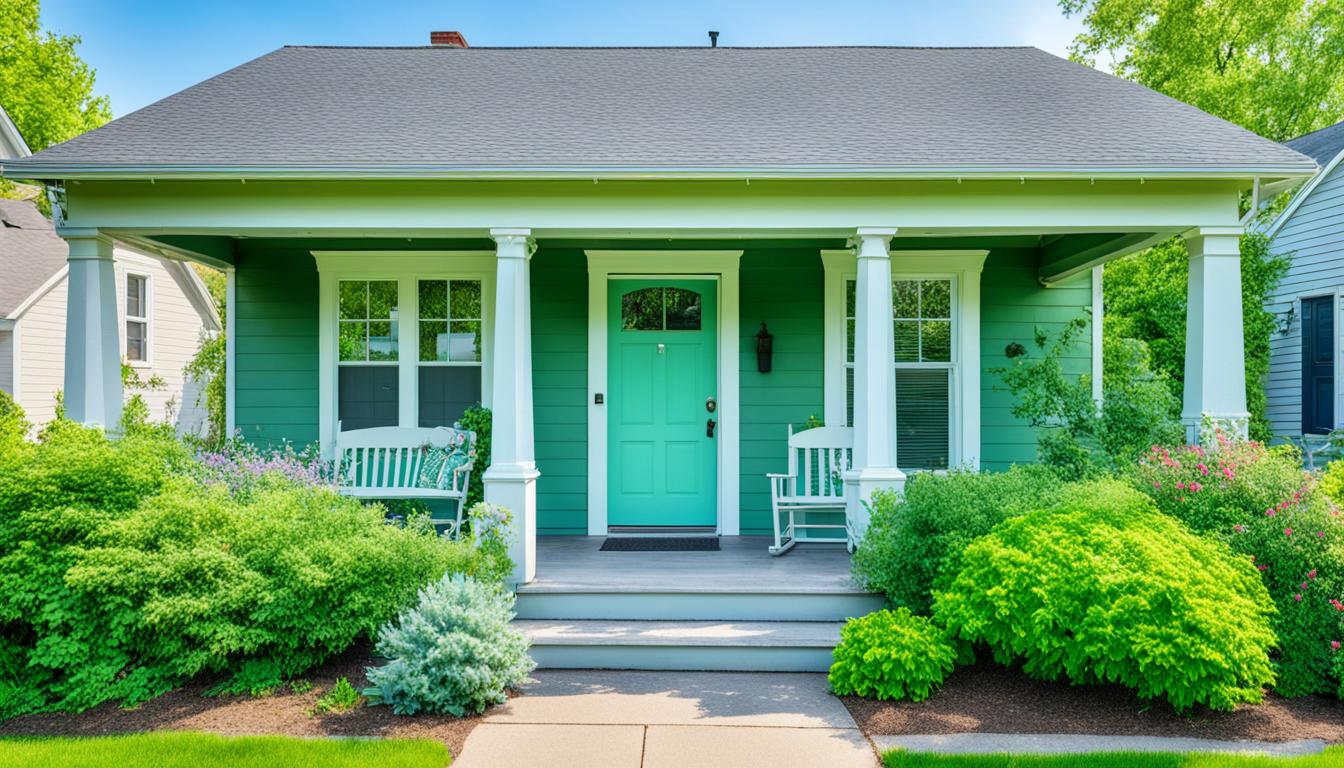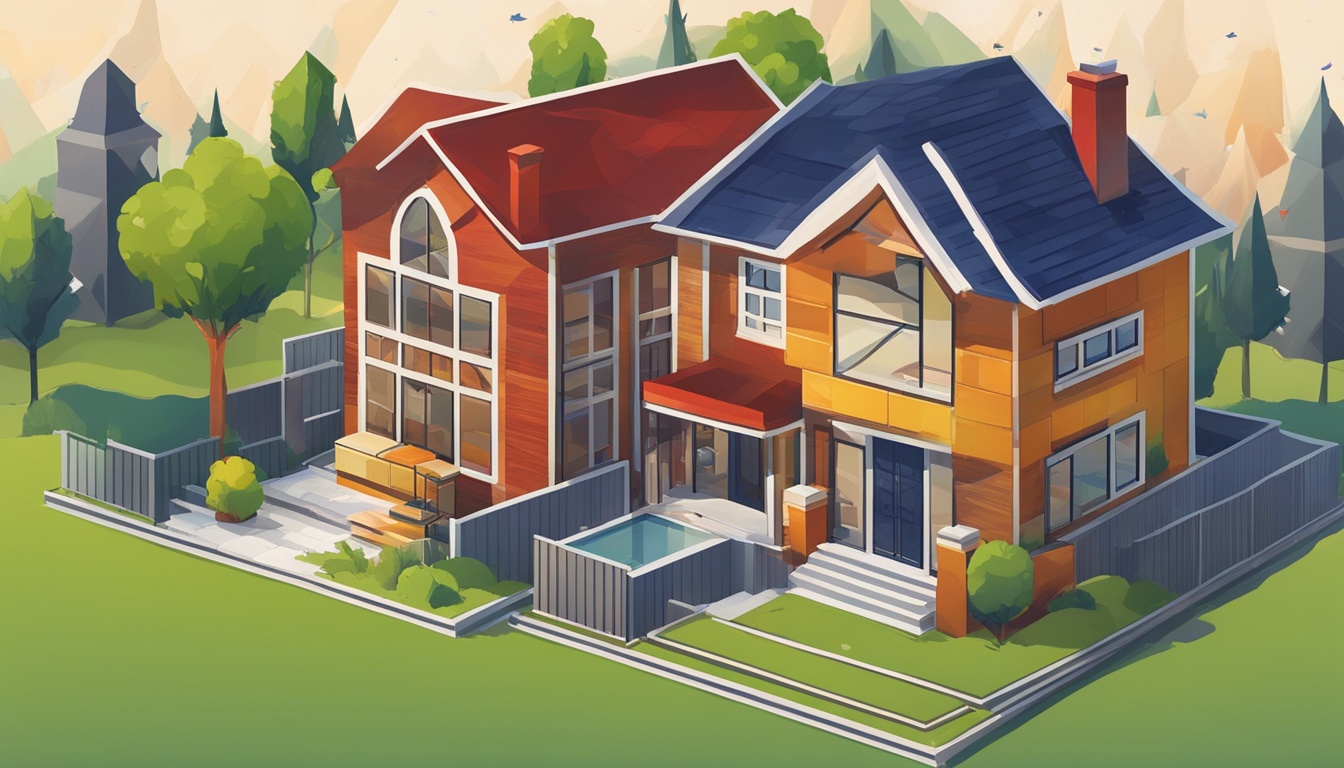Blog > Avoid These Mistakes When Selling Your Home
Avoid These Mistakes When Selling Your Home
Selling your home is a big financial step that needs careful planning. Many homeowners make mistakes that slow down the sale or lower the price. A survey by HomeLight.com found that 70% of real estate agents say overpricing is the leading mistake sellers do.
To sell your home well, avoid these mistakes. Price it right, make it look great, negotiate smartly, and pick a good real estate agent.

Selling a home can cost about 10% of the sale price. This includes agent fees, closing costs, repairs, and what you might give the buyer. Agents take 5% to 6% of the sale price, affecting your profits. You'll also pay 1–3% in closing costs, like taxes and fees, for the title and closing.
Know the mistakes to avoid to make more money and reduce stress. Asking too much for your home can make it sit longer and might mean lowering the price. Not using good photos is another mistake, as they draw in buyers in today's online world.
Key Takeaways:
- Overpricing your home is the most common mistake sellers make, according to 70% of real estate agents.
- The total cost of selling a home can be around 10% of the sale price, including agent commissions, closing costs, repairs, and concessions to the buyer.
- Setting an unrealistic asking price can lead to a longer time on the market and potential price reductions.
- Skimping on listing photos is a mistake, as high-quality visuals are crucial in attracting potential buyers online.
- Choosing the right real estate agent and implementing effective marketing techniques can significantly impact your home sale success.
Not Preparing Your House for Sale
Many home sellers overlook the importance of preparing their property for sale. In today's competitive market, making your home stand out is critical. Staged homes sell 88% faster and for 20% more than those that aren't staged. Focus on decluttering, deep cleaning, repairs, and improving curb appeal to boost your home's appeal and value.

Decluttering and Depersonalizing
Clutter can make your home seem smaller and less welcoming to buyers. Remove personal items like family photos and keepsakes, which help buyers imagine themselves living there. Consider renting a storage unit or getting help from friends and family to store your belongings.
Deep Cleaning and Repairs
A deep clean is crucial to show your home in its best light. Focus on kitchens and bathrooms, as these areas greatly influence a buyer's decision. Fix any maintenance issues, like leaky faucets or loose doorknobs, as a long list of repairs can deter buyers and lower your home's value.
When getting your home ready for sale, focus on fixing items that are broken, in poor condition, or affect safety, structure, or functionality. This includes:
- Fixing leaky roofs or plumbing issues
- Repairing or replacing damaged flooring
- Updating outdated electrical systems
- Addressing foundation or structural problems
- Replacing broken windows or doors
Enhancing Curb Appeal
Your home's exterior is what buyers see first, setting the tone for what's inside. A well-kept exterior can make a great first impression and boost interest in your property. To improve curb appeal, consider these cost-effective options:
| Improvement | Average Cost |
|---|---|
| Landscaping and minor exterior improvements | $200 - $500 |
| Repainting the front door and trim | $100 - $300 |
| Pressure washing exterior surfaces | $50 - $200 |
| Updating outdoor lighting | $50 - $300 |
When thinking about renovations, balance costs with potential returns. Some buyers like to put their own touch on a home, so don't spend too much on upgrades. According to Zonda's 2024 Cost vs. Value Report, the top projects for ROI are garage door replacement at 194%, steel door replacement at 188%, and manufactured stone veneer at 153%.
Focusing on staging, improving curb appeal, and tackling essential home improvements and maintenance can make your property more attractive and valuable to potential buyers.
Common Mistakes to Avoid When Selling Your House for Profit
Selling your home can be tricky and emotional. But avoiding common mistakes can help you make more money and make the process smoother. Fundamental errors include overpricing your home, skipping staging and professional photos, picking the wrong real estate agent, and not sharing property issues.
Overpricing Your Home
Setting an asking price that is too high is a big mistake. It might seem reasonable to dream big, but it can scare off buyers and make your home sit on the market longer. Homes priced too high often get less interest and might need price cuts, hurting your profits. To avoid this, work with a real estate agent who knows the market well. They can help set a fair price matching your home's value.

Neglecting Staging and Professional Photography
Most buyers start looking online, so great photos are key. Without professional photos, you could lose potential buyers. Also, not staging your home can make it take longer to sell and lower its value. By cleaning, removing personal items, and making your home look better, you help buyers see themselves in the space.
| Selling Approach | Average Sale Price | Time on Market |
|---|---|---|
| Agent-Assisted Sales | $295,000 | 4-6 weeks |
| For Sale By Owner (FSBO) | $210,000 | 8-12 weeks |
Choosing the Wrong Real Estate Agent
Finding the right real estate agent is critical to selling your home well. Make sure they know the local market and have the proper licenses. Talk to past clients to see how they feel about the agent. A good agent can guide you through selling, offer advice on pricing and staging, and negotiate for you.
Failing to Disclose Property Issues
Being honest is essential when selling your home. Not sharing known problems can lead to legal trouble and loss of buyer trust. Get a professional home inspection before listing to find any issues. Being open about defects can help you avoid legal problems and save money during negotiations.
On average, a seller's home inspection costs around $350, but it can save you thousands in potential repairs or price reductions down the line.
By avoiding these mistakes and focusing on making your home more valuable, you can sell it successfully and profitably.
Navigating the Selling Process
Before you start selling your home, get to know your finances well. Look at your income, debts, and future expenses. This will help you figure out how much you can spend on a new home. It will also set realistic goals and guide your choices in selling and buying.
Get ready for showings and open houses, even if they're inconvenient. The more your home is open, the faster you'll find a buyer. Keep everything organized and talk nicely with your real estate agent and other experts to make the sale smooth.
Think about your finances broadly. Consider your mortgage, selling costs, and sale price to guess your profit. Sellers usually spend five to six percent of the sale price on agent commissions. Don't forget to include closing costs in your budget, as they can surprise you.
"Failing to plan is planning to fail. Take the time to understand your financial situation and create a solid plan before selling your home to ensure a successful transaction."
If you plan to buy a new home after selling, consider what you can afford. Look at your monthly spending, savings, and future financial goals. When planning for your next home, consider:
- Monthly mortgage payments
- Property taxes and insurance
- Maintenance and repair costs
- Utility expenses
- Moving costs and other associated fees
Planning well for selling and buying will help you move smoothly to your new home. Always talk to a financial advisor or real estate expert to help you make good choices.
| Home Selling Cost | Percentage of Sale Price |
|---|---|
| Agent Commissions | 4-6% > *heroSOLD™️ starts as low as 1% |
| Closing Costs | 2-5% |
| Home Staging | 0.5-1% |
| Professional Cleaning | 0.1-0.5% |
As shown in the table, selling a home comes with many costs. Knowing these costs and planning for them is key. This way, you can make smart choices and have a successful sale.
Conclusion
Selling your home can be overwhelming and emotional. But by knowing common mistakes, you can feel more confident and sell your home successfully. Key steps include getting your home ready for sale, pricing it right, working with experts, and being honest about issues.
It is important to stay informed and in touch with your team. This helps you stay focused on your financial goals. Selling your home can be tough, but it also means you can move forward with more money to follow your dreams.
Avoiding common mistakes and keeping your goals in mind helps you sell your home smoothly. This lets you peacefully move on to your next chapter. Remember, a successful sale comes from being knowledgeable, having a good team, and staying positive and proactive.
FAQ
What are some common mistakes to avoid when selling your residence for profit?
Avoid overpricing your home and ignoring its appeal. Also, don't pick the wrong real estate agent, and be honest about any issues with the property. These mistakes can make your home stay on the market too long, forcing you to lower the price and possibly losing money.
How important is pricing your home correctly?
Setting the right price is key to selling your home fast. The price you set might not match what buyers are willing to pay. If you price too high, your home may sit on the market too long, while pricing too low can mean leaving money behind.
What role does staging and curb appeal play in selling a property?
Staging and curb appeal are vital in drawing in buyers and boosting your home's value. Too much clutter can make your home look smaller and harder to imagine living in. Homes that are staged sell 88% faster and for 20% more. A great first impression is crucial, starting with your home's exterior.
How can I prepare my home for a successful sale?
To prepare your home for sale, start by decluttering and deep cleaning. Fix any repairs and improve your home's appearance. Focus on big issues that could be found during inspections. Consider how renovations will affect your schedule and budget.
What should I look for when selecting a real estate agent?
When picking a real estate agent, ensure they know your area and price range well. Check their credentials and talk to past clients for feedback. A good agent can help with pricing, marketing, and negotiating.
How can I maximize my home's value through home improvements?
Focus on fixing safety, structure, and functionality issues before selling. Think carefully about renovations as they can be expensive and might not fully pay off. Stick to updates that bring the best return on investment, like the kitchen and bathroom.
What are the potential tax implications of selling my home?
Selling your home can have tax effects based on your primary residence status, ownership time, and capital gains. If you've lived in your home for at least two of the last five years, you might exclude up to $250,000 (or $500,000 for married couples) from taxes. Always consult a tax expert for advice tailored to your situation.
How can I time the market for the best results when selling my home?
Timing the market is tricky due to local trends and seasons. Spring and summer are usually busier for home sales as families move before school starts. But the best time to sell depends on your needs and the local market. Work with your agent to find the right time for your goals.
Leave a Reply

